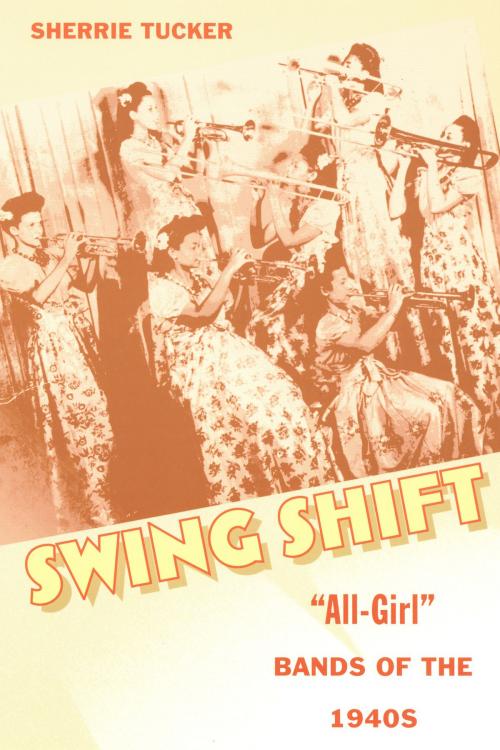Swing Shift
"All-Girl" Bands of the 1940s
Nonfiction, Entertainment, Music, Music Styles, Jazz & Blues, Jazz, Theory & Criticism, History & Criticism| Author: | Sherrie Tucker | ISBN: | 9780822380900 |
| Publisher: | Duke University Press | Publication: | June 6, 2000 |
| Imprint: | Duke University Press Books | Language: | English |
| Author: | Sherrie Tucker |
| ISBN: | 9780822380900 |
| Publisher: | Duke University Press |
| Publication: | June 6, 2000 |
| Imprint: | Duke University Press Books |
| Language: | English |
Theforgotten history of the “all-girl” big bands of the World War II era takes center stage in Sherrie Tucker’s Swing Shift. American demand for swing skyrocketed with the onslaught of war as millions—isolated from loved ones—sought diversion, comfort, and social contact through music and dance. Although all-female jazz and dance bands had existed since the 1920s, now hundreds of such groups, both African American and white, barnstormed ballrooms, theaters, dance halls, military installations, and makeshift USO stages on the home front and abroad.
Filled with firsthand accounts of more than a hundred women who performed during this era and complemented by thorough—and eye-opening—archival research, Swing Shift not only offers a history of this significant aspect of American society and culture but also examines how and why whole bands of dedicated and talented women musicians were dropped from—or never inducted into—our national memory. Tucker’s nuanced presentation reveals who these remarkable women were, where and when they began to play music, and how they navigated a sometimes wild and bumpy road—including their experiences with gas and rubber rationing, travel restrictions designed to prioritize transportation for military needs, and Jim Crow laws and other prejudices. She explains how the expanded opportunities brought by the war, along with sudden increased publicity, created the illusion that all female musicians—no matter how experienced or talented—were “Swing Shift Maisies,” 1940s slang for the substitutes for the “real” workers (or musicians) who were away in combat. Comparing the working conditions and public representations of women musicians with figures such as Rosie the Riveter, WACs, USO hostesses, pin-ups, and movie stars, Tucker chronicles the careers of such bands as the International Sweethearts of Rhythm, Phil Spitalny’s Hours of Charm, The Darlings of Rhythm, and the Sharon Rogers All-Girl Band.
Theforgotten history of the “all-girl” big bands of the World War II era takes center stage in Sherrie Tucker’s Swing Shift. American demand for swing skyrocketed with the onslaught of war as millions—isolated from loved ones—sought diversion, comfort, and social contact through music and dance. Although all-female jazz and dance bands had existed since the 1920s, now hundreds of such groups, both African American and white, barnstormed ballrooms, theaters, dance halls, military installations, and makeshift USO stages on the home front and abroad.
Filled with firsthand accounts of more than a hundred women who performed during this era and complemented by thorough—and eye-opening—archival research, Swing Shift not only offers a history of this significant aspect of American society and culture but also examines how and why whole bands of dedicated and talented women musicians were dropped from—or never inducted into—our national memory. Tucker’s nuanced presentation reveals who these remarkable women were, where and when they began to play music, and how they navigated a sometimes wild and bumpy road—including their experiences with gas and rubber rationing, travel restrictions designed to prioritize transportation for military needs, and Jim Crow laws and other prejudices. She explains how the expanded opportunities brought by the war, along with sudden increased publicity, created the illusion that all female musicians—no matter how experienced or talented—were “Swing Shift Maisies,” 1940s slang for the substitutes for the “real” workers (or musicians) who were away in combat. Comparing the working conditions and public representations of women musicians with figures such as Rosie the Riveter, WACs, USO hostesses, pin-ups, and movie stars, Tucker chronicles the careers of such bands as the International Sweethearts of Rhythm, Phil Spitalny’s Hours of Charm, The Darlings of Rhythm, and the Sharon Rogers All-Girl Band.















